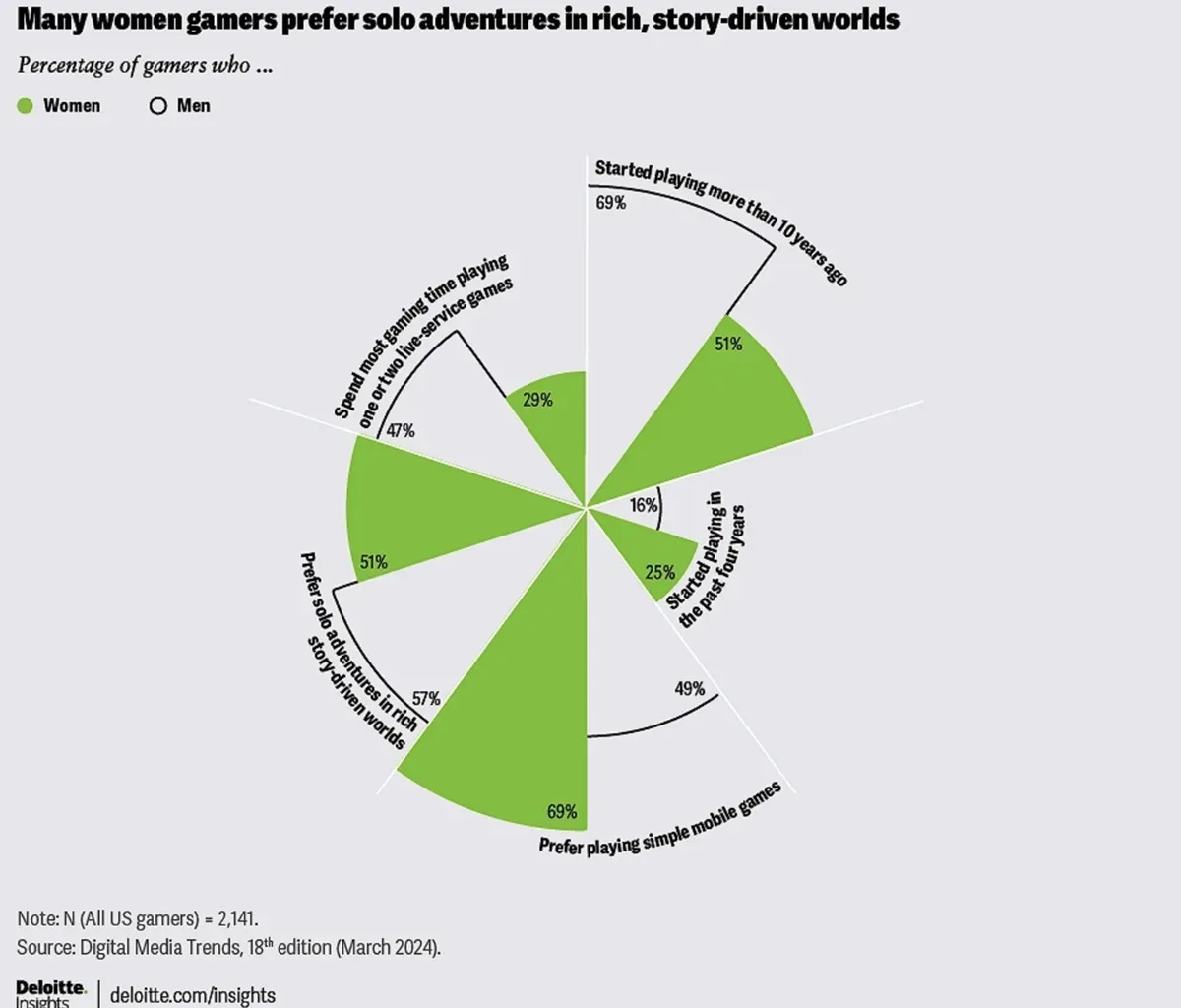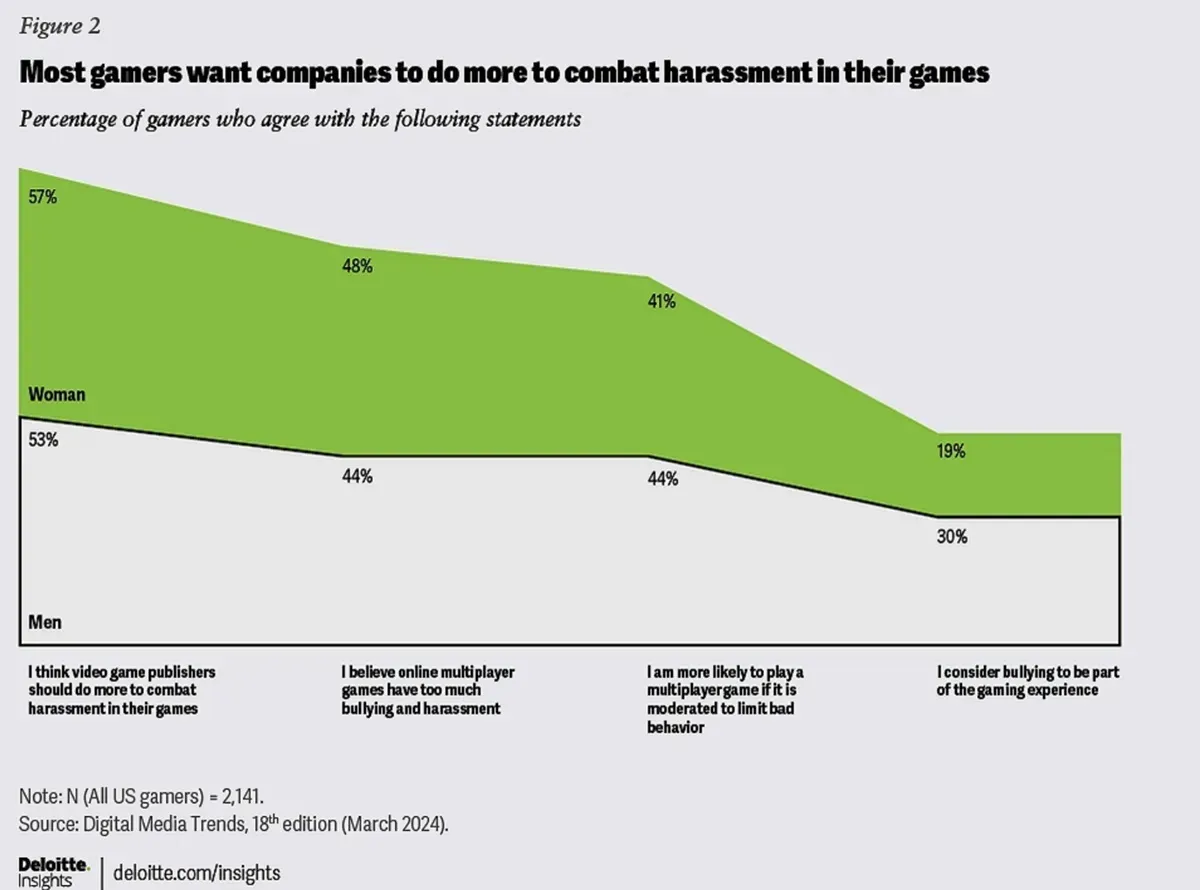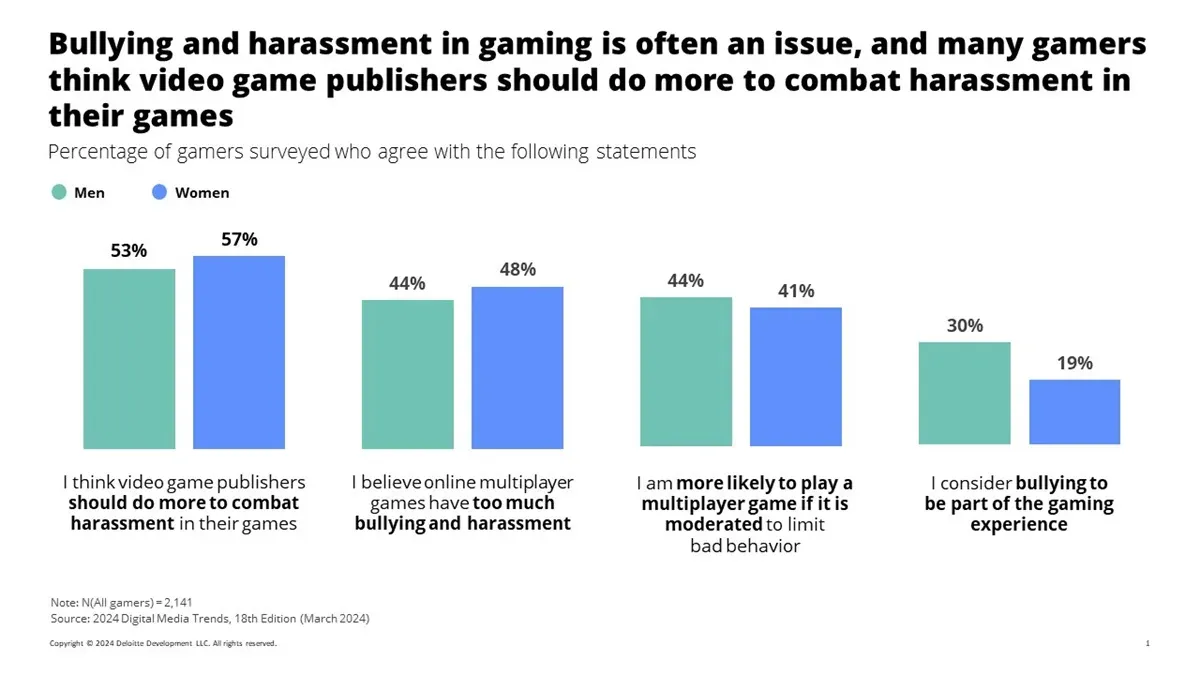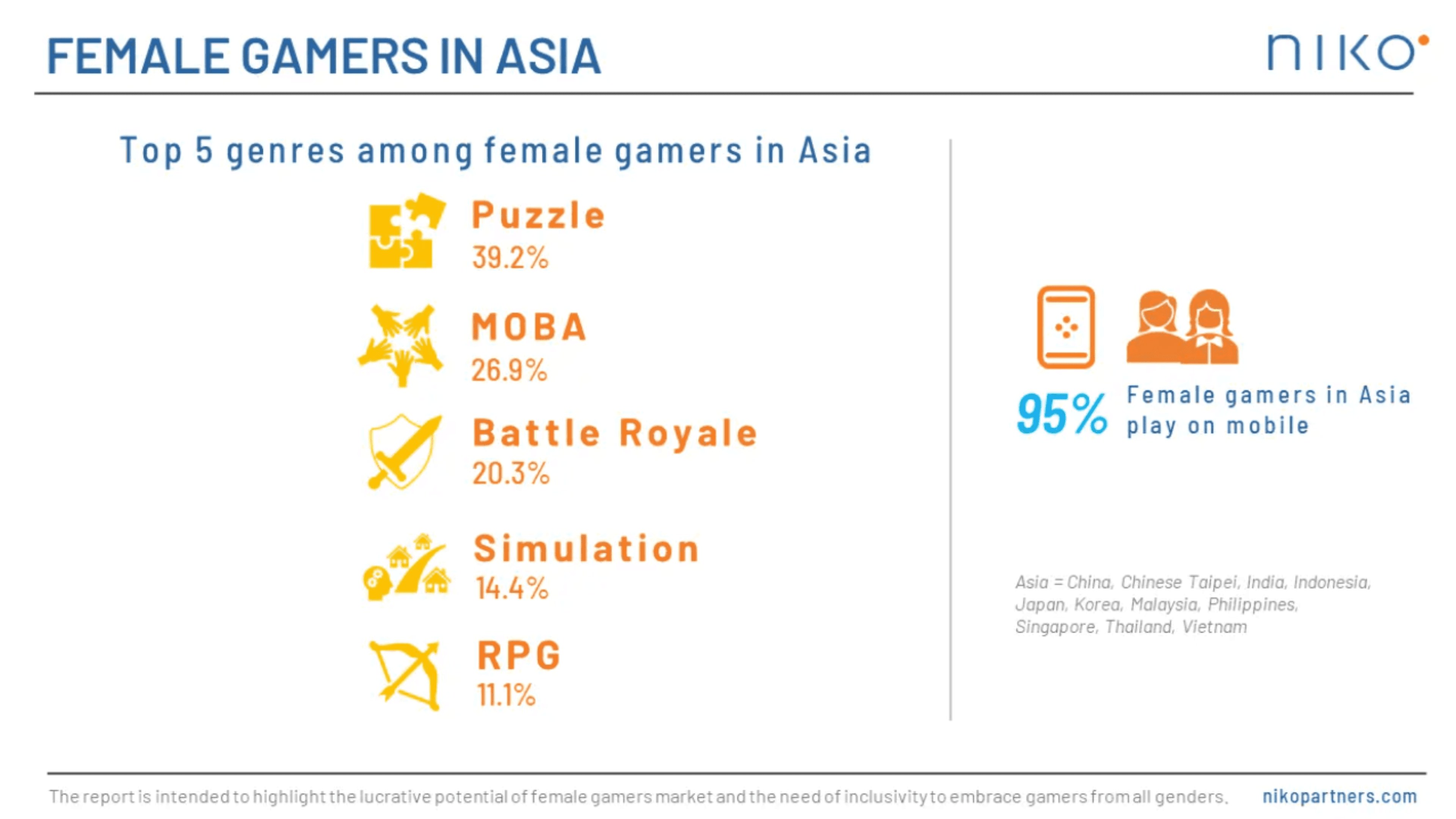In the realm of online gaming, a disconcerting trend persists: women are increasingly avoiding live service games due to pervasive harassment. Despite the booming popularity of these immersive online experiences, the toxic environment fostered by sexist behavior and discrimination has become a significant deterrent for female gamers.
This article dives into recent data published by Deloitte, addressing the troubling phenomenon, and exploring the reasons behind women's reluctance to engage with live service games. We will also touch on possible solutions to address the urgent need for systemic change within the gaming industry to foster inclusivity and respect.

For Women Play Video Games, It's Still a Mand's World
Women Avoid Live Service Games
New research conducted by Deloitte suggests that while there are as many women playing games as there are men, a significant portion of women tend to steer clear of multiplayer and live service games due to concerns over bullying and harassment.
Approximately 60% of Americans surveyed, across genders, spend an average of nine hours per week playing video games. Data also shows that 25% of surveyed women gamers and 16% of men gamers (one in five U.S. gamers overall) started playing video games in the past four years.
The survey finds that while nearly half of gamers who are men say they spend most of their gaming time playing one or two live service games, just 29% of women gamers do so. Indeed, half of women gamers surveyed are not interested in multiplayer games, and 69% prefer mobile games.

Many Woman Gamers Prefer Solo Adventures in Rich Story-Driven-Worlds
More Inclusive Gaming Experiences
One way that could bring more women into live service games is by addressing issues of toxicity. Although almost half of both men and women gamers surveyed believe online multiplayer games have too much bullying and harassment, they may be impacted by it differently.
About 30% of surveyed men who play games consider "teasing to be part of the gaming experience", but only 19% of women gamers surveyed agreed with this statement. Among gamers surveyed, 57% of women and 53% of men agree that video game publishers should do more to combat bullying and harassment in their games.
Many live services have tools to monitor and moderate text and audio chats, but the integration of generative artificial intelligence could make it more powerful, adaptive, and nuanced. Early research suggests that large language models may be more capable of identifying actor intentions, moderating toxic comments, and rewarding positive contributions.

Most Gamers Want Companies To Do More To Combat Harassment in Their Games
Story-Driven Narratives
Deloitte's Digital Media Trends study highlights distinct gender differences that may hinder the expansion of certain gaming segments, particularly live service games. Despite the increasing popularity of gaming, women seem to be searching for their place within the gaming community, with concerns over gaming experiences geared toward male interests contributing to toxicity.
Among women who started gaming in the past two years, 43% surveyed prefer solo adventures in rich story-driven games. Such games could attract more women to gaming. Delivering these games to next-generation mobile devices could also help. While these games can be very expensive to develop and market, they may be poised to reach larger audiences.
To address these issues and retain newly acquired gamers, especially casual female players, game companies must explore strategies to attract them to narrative-driven and live-service games. This challenge arises against a backdrop of a post-pandemic contraction in the gaming industry. While cost-cutting measures may provide short-term relief, attracting more paying players and enhancing engagement is crucial for sustainable growth, Deloitte suggests.

Bullying and Harassment in Gaming is Often an Issue
Possible Solutions
One potential solution proposed by Deloitte involves tackling the issue of bullying and harassment in online multiplayer games. While both male and female gamers acknowledge the prevalence of such behavior, it appears to impact women differently. Strengthening moderation efforts and social norms within gaming communities could foster a more positive gaming environment for all players.
Moreover, game companies could explore incorporating non-gaming experiences, such as concerts and promotional events, within live service games to appeal to a broader audience, including women. Additionally, fostering diversity in solo story-driven games, featuring strong female characters, may attract more women to gaming. Collaboration with brands and franchises catering to women's interests, as well as supporting female creators, could further enhance the inclusivity of the gaming industry.
Overall, Deloitte's research emphasizes the importance of addressing gender disparities in gaming to foster greater revenue generation and innovation. By offering diverse gaming experiences and supporting female participation across all aspects of the industry, gaming companies can tap into new markets and drive sustainable growth.




